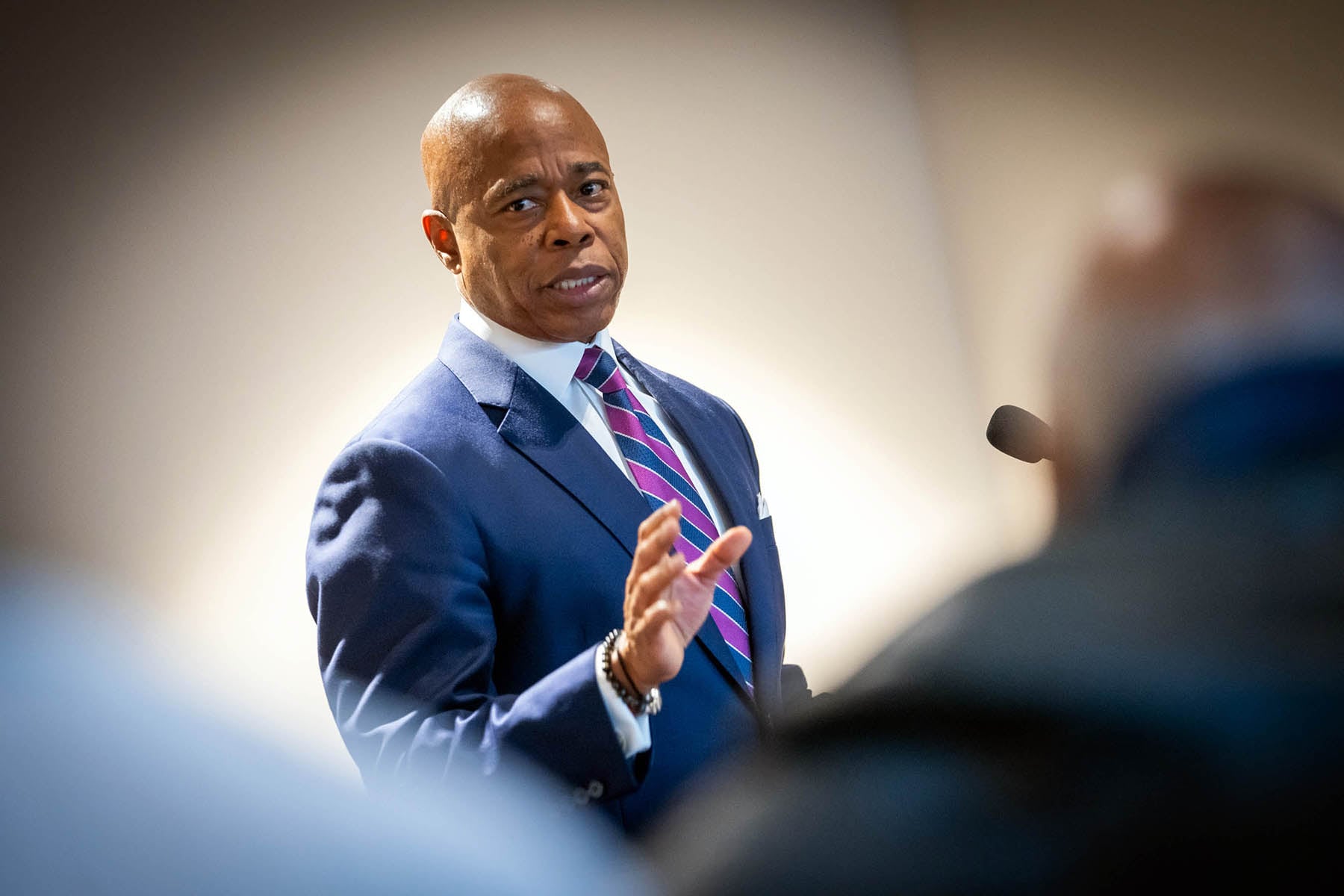Sign up for Chalkbeat New York’s free daily newsletter to keep up with NYC’s public schools.
New York City is backing down from millions in proposed funding cuts for its community schools program, while committing more permanent funding to Summer Rising, Mayor Eric Adams said Friday.
The announcement reverses a fraction of the steep cuts Adams ordered in the fall, as he blamed the city’s bleak financial picture largely on the ongoing influx of asylum seekers and other migrants — an assessment other elected officials have pushed back on.
At the time, Adams directed the city’s Education Department to slash nearly $550 million from its budget, with more cuts anticipated this month and in the spring.
The November cuts included about $10 million from community schools that support families with out-of-school needs. Separately, nearly $20 million for Summer Rising — a pandemic-era, free summer school program that served roughly 110,000 students last year — was cut from the city’s Department of Youth and Community Development budget, which jointly runs the program.
Both programs had been largely propped up by federal COVID relief funds.
Though officials referred to the investments in both programs as “restorations” on Friday, only community schools will see a reversal of the November budget cuts. The $20 million cut from the DYCD budget still remains in place, officials clarified after the announcement.
For Summer Rising, though, the Education Department will now use city funds to cover its roughly $80 million portion of the program’s tab, which had previously been supported by federal stimulus dollars. In past years, the program cost about $350 million to operate, according to estimates at the time.
Officials previously said the November cuts would mean reduced hours and no Friday programs for some middle-schoolers. Asked during the press conference whether the announcement meant a reversal of those potential reductions, schools Chancellor David Banks said, “That is certainly our expectation,” though added they were “still engaged in the planning process.”
Education Department officials later clarified they were “working towards trying to restore that.”
Adams said the $80 million in Summer Rising funding, as well as restorations to roughly 170 community schools, came thanks to “strong fiscal management.”
“We want to be extremely, extremely clear: We know it takes an entire city to raise a child,” Adams said. “Through community schools and the Summer Rising program, we’re giving our young people a chance to learn and grow.”
But despite the restoration to community schools, the bulk of the cuts to the city’s Education Department will remain.
Adams’ cuts to education funding have garnered fierce pushback, including a lawsuit by the city’s teachers union, which referred to them as “draconian.”
In a statement Friday, United Federation of Teachers President Michael Mulgrew called the mayor’s decision to reverse some of the cuts “a step in the right direction.”
“Now, the city needs to walk back the other proposed education cuts,” he said.
Budget analysts have previously said the cuts are greater than the expected costs to serve asylum seekers, and an analysis by Comptroller Brad Lander found the city collected nearly $8 billion more in revenue last fiscal year than anticipated.
Scores of educators also flocked to public hearings on mayoral control in recent weeks to decry the cuts to education, citing them as evidence against the city’s school governance structure and urging state officials to revise or overturn it.
On Friday, Banks credited the funding changes to what he called “mayoral accountability,” a term frequently used by supporters of the current school governance structure — arguing again that the city should retain its system.
The Friday announcement — first reported by the New York Daily News — follows a reversal of other budget cuts in recent days, including to the NYPD, FDNY, and the Sanitation Department.
The city’s schools still face steep budget cuts and looming fiscal challenges. Since the start of the pandemic, the federal government has provided the Education Department with about $7.7 billion in one-time pandemic aid — but those funds will dry up in September.
Adams, who is expected to unveil his preliminary budget on Tuesday, was careful to temper expectations.
“We do not want it to be taken as a signal that the city is out of the woods,” he said. “We are not.”
Julian Shen-Berro is a reporter covering New York City. Contact him at jshen-berro@chalkbeat.org.







